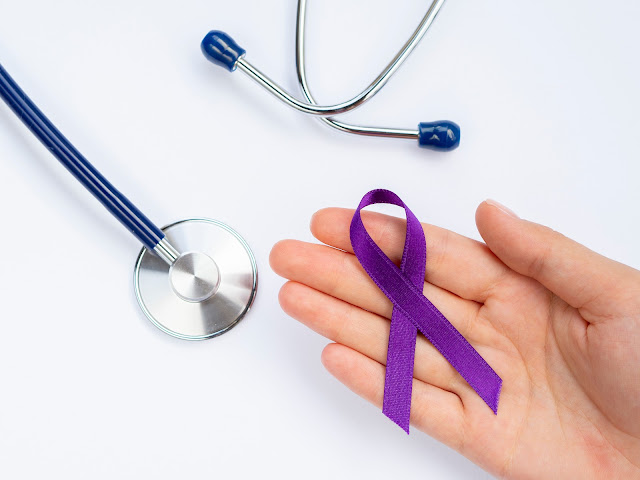Top 6 Strategies to Lower Your Cancer Risk
Many cancers develop from a combination of risk factors. Exposure to radiation, chemicals in the environment and some substances at work (such as asbestos, radon or secondhand smoke) can increase your risk.
Lifestyle choices, like eating a healthy diet, exercise and avoiding smoking, can help reduce your cancer risk. Routine screening tests can find some cancers early, when they are easier to treat.
1. Eat a Healthy Diet
Many types of cancer are preventable, and the single most important thing you can do to reduce your risk is lead a healthy lifestyle. That means living smoke-free, enjoying the sun safely, getting routine medical care and maintaining a healthy weight.
You can also help prevent some types of cancer by eating a well-balanced diet, rich in fruits and vegetables, whole grains, beans and nuts. These foods contain nutrients that boost the immune system and protect against cancer-causing chemicals. Try to fill your plate with two-thirds plants, such as fruits, vegetables and whole grains, and limit red meat, processed foods and added sugars.
A diet high in nitrates, found in processed meats like bacon, sausages and hotdogs, increases the risk of colorectal cancer. Eating a low-sodium diet can cut your cancer risk by 20%, Dr. Bevers says.
Try to avoid processed foods and eat more natural sources of protein, such as fish, chicken, eggs and dairy. Be sure to get enough vitamin D, which is linked with a lower risk for certain cancers. Vitamin D is naturally produced by exposure to the sun, but some people can't make enough of it on their own. You can also take a supplement to get the recommended amount of vitamin D. Vitamin D is also fortified in some foods, including cereals and milk.
2. Exercise Regularly
There are many factors that can lead to cancer, and some of them are out of our control. But following a healthy lifestyle can significantly reduce your risk of cancer and help you live a longer, healthier life.
Normally, cells grow and divide to form new ones as the body needs them. When the old cells become damaged or are no longer needed, they die and new cells take their place. But when this process goes awry, cancer can occur. Cancer cells can also spread to other parts of the body, where they develop into tumors.
Many things can increase your risk of cancer, including smoking and sun exposure. But getting plenty of physical activity, eating a well-balanced diet and keeping a healthy weight can help lower your risk.
Experts recommend adults engage in 150 minutes of moderate-intensity exercise each week — and more is better. Activities like walking, golfing and yoga can all count as moderate activity. If you’re concerned about how much you should be exercising, talk to your doctor. Other healthy habits can also reduce your cancer risk. For example, hepatitis B and human papillomavirus (HPV) vaccinations can help prevent liver and cervical cancers, respectively. And avoiding known carcinogens, such as asbestos, benzene and polychlorinated biphenyls, can also improve your health. In addition, it’s important to continue yearly available screening exams, such as mammograms and prostate-specific antigen tests.
3. Avoid Smoking
While genetic factors aren't changeable, lifestyle choices can significantly affect your risk of developing cancer. While many factors, such as age and family history, cannot be changed, some are preventable, including smoking and not protecting your skin from the sun.
Smoking or chewing tobacco (including e-cigarettes/vapes) is linked to lung, mouth, throat, bladder, pancreas and cervical cancer. It also increases your risk for heart disease and other health problems. Quitting is a top cancer prevention strategy.
Try avoiding the places, people and activities you associate with smoking. You might consider using relaxation techniques, such as deep breathing, meditation or yoga. When the urge to smoke hits, try to find low-calorie alternatives like carrot sticks, celery, sugarless gum or a paper clip or pencil. Avoid drinks containing alcohol and caffeine as they can trigger cravings for tobacco.
Some cancers are caused by inherited genes, but most are the result of lifestyle factors and environment. The best way to lower your cancer risk is to follow a healthy diet and exercise regularly, get regular screenings for common cancers like mammography and the pap test and avoid smoking and second-hand smoke. In addition, you should protect your skin from the sun by using sunscreen with a SPF of 30 or higher. Lastly, you should also get a yearly flu shot as influenza can be a cause of pneumonia, which is another common cancer-causing illness.
4. Protect Your Skin
Cancer is a disease that occurs when abnormal cells grow out of control and form a tumor, or spread to other parts of the body. While genetics and some lifestyle factors are out of your control, many cancer-prevention strategies can help lower your risk. For example, getting screening tests can find cancers early and increase your chances of a better outcome. Vaccines also can reduce your cancer risk. For example, the human papillomavirus (HPV) vaccine can prevent most cervical cancers, and the hepatitis B virus vaccination can help lower liver cancer risk.
Sun exposure is one of the biggest cancer risks you face. Excessive sun exposure increases your chance of developing skin cancer, especially melanoma, the most serious type. Exposure to UV radiation can increase your risk even if you never have sunburns or other signs of skin damage. This is because the DNA of damaged cells can be changed over time by repeated UV radiation or by certain medications.
To protect yourself, avoid the sun between 10 a.m. and 4 p.m. When you do go outside, wear a wide-brimmed hat, sunglasses and sunscreen that has a minimum sun protection factor of 30. Also, consider covering up with clothing, including long sleeves and pants. Examine your skin regularly for any new growths or changes to moles, freckles and other marks. Report any changes to your doctor right away.
5. Drink Water
Water is the body’s first choice for hydration, providing a healthy balance of fluids to keep skin looking and functioning well. It also helps prevent dehydration, promotes bowel health and assists with kidney function.
Drink a minimum of six to eight glasses (around 2 litres) of water per day, and aim for more if you sweat a lot or exercise heavily. Add a squeeze of lemon, or slices of fresh fruit to your water to make it more interesting, and get the bonus vitamins and fibre from whole fruits and vegetables.
Avoid sugary drinks, caffeinated beverages and alcohol – all of which can contribute to weight gain and increase cancer risk. Alternatively, have fruit juices made from whole fruits and vegetables – they contain the same amount of fluids as water but have added nutrients and are low in sugar.
Normally, cells grow and divide to replace old or damaged ones, but when cancer develops this process breaks down. Abnormal cells start growing and multiplying at an uncontrolled rate and can then spread to other parts of the body, where they may form tumours.
Cancer is a complex disease with many causes, and not all can be prevented. However, making a few simple lifestyle changes can help reduce your cancer risk and overall health, such as by staying at a healthy weight, avoiding smoking, drinking less alcohol and protecting your skin.
6. Avoid Alcohol
One in three women and two in three men will be diagnosed with cancer at some point in their lives, but a healthy lifestyle can significantly reduce your risk of developing the disease. While some factors that can lead to cancer are out of our control, including age and genetics, avoiding certain harmful habits like smoking and excessive drinking can help lower your risk.
Alcohol, whether in the form of beer, wine or spirits, increases your cancer risk because it irritates healthy cells and may cause DNA damage that can lead to cell growth out of control. In addition, alcohol can also produce a chemical known as acetaldehyde, which is a known carcinogen and interferes with the way that our bodies naturally repair DNA damaged by other substances.
Even moderate drinking (one to two drinks per day) can increase your risk for several different types of cancer. It’s best to avoid alcohol altogether or, if you do decide to drink, limit your intake to no more than ten standard drinks per week and have some alcohol-free days each week.
These strategies aren’t major changes that will significantly alter your life, but they can have a huge impact on your health and help reduce your cancer risk. And most of them will also improve your overall well-being, making them worth the effort!












